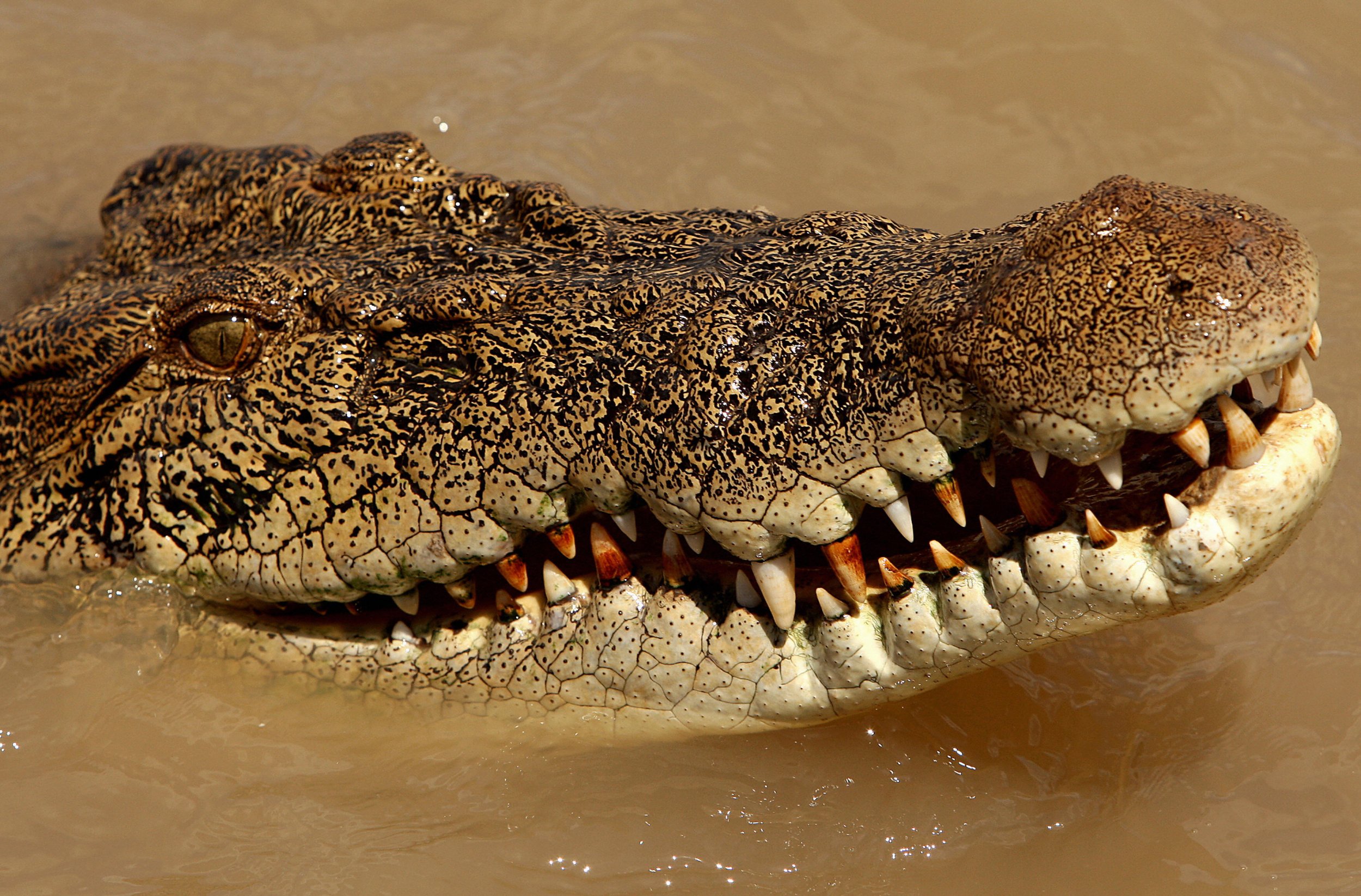
Once endangered, the saltwater crocodile now menaces residents of an island in southeast Asia.
The fearsome reptile fatally attacks 13 people every year, a trend that spiked in 2007 as the croc increasingly infested surrounding waters, Australian researchers wrote in a paper titled "When Conservation Becomes Dangerous." The species, often called the "most aggressive," has killed more than 130 people—plus more whose deaths weren't reported.
Lead author Sebastian Brackhane said an influx of saltwater crocodiles likely migrated from neighboring Australia where there's simply no room for the reptiles, which grow up to 17 feet and weigh around 1,000 pounds. They can reside in both fresh and saltwater, another key to their survival.
"We believe that in many areas, the habitat in the northern territory has reached maximum carrying capacity, and juvenile saltwater crocodiles cross the sea to East Timor to find new habitats," he said in a statement.
The population substantially recovered since Australia banned hunting of the native reptile in 1970. It's had no problem dominating the Timor Sea: Safe from humans, it has no natural predator. Their immense size and brute strength—the force of their jaws exceeds 3,700 pounds per square inch—leave the prey it attacks indefensible.
More than 80 percent of people were attacked while fishing, followed by bathing and water collecting. East Timor, home to 1.2 million people, awards the highest protection to the croc, since its inhabitants believe a mythical "Grandfather Crocodile" created the island, researchers said.
Crocodiles can kill more than 1,000 people a year, but "salties" are often considered the scariest species. According to National Geographic, they may be the most animal most likely to eat a human.
"Any animal that moves is fair game," science writer Melissa Hogenboom wrote for BBC. "If that warm-blooded mammal happens to be a human, they will not discriminate."
The saltwater crocodile's aggression is evident from the moment it hatches. They're increasingly aggressive with each other and establish a hierarchy of dominance quickly, a 2013 study of captive hatchlings found. They adopt territorial attitudes almost immediately, which persist throughout the rest of their lives.
Another small island terrorized by the predator may reverse its hunting ban. Police in the South Pacific Solomon Islands were forced to shoot and kill 40 saltwater crocodiles after they attacked 10 people and dozens more livestock in 2017.
But "draining the swamp" likely won't stop people from entering the crocodile's habitats, so the dip in human attacks may be slight.
"To go out and shoot crocodiles is really dangerous because it can lure people into a false sense of safety," zoologist Craig Franklin told the Guardian. "The more humans you have living in crocodile country, the more likely you are going to have these negative interactions with crocodiles."
Uncommon Knowledge
Newsweek is committed to challenging conventional wisdom and finding connections in the search for common ground.
Newsweek is committed to challenging conventional wisdom and finding connections in the search for common ground.
About the writer
Scottie is a Newsweek science fellow and student at the University of Florida. Her work has appeared in Women's Health, the Gainesville ... Read more
To read how Newsweek uses AI as a newsroom tool, Click here.








